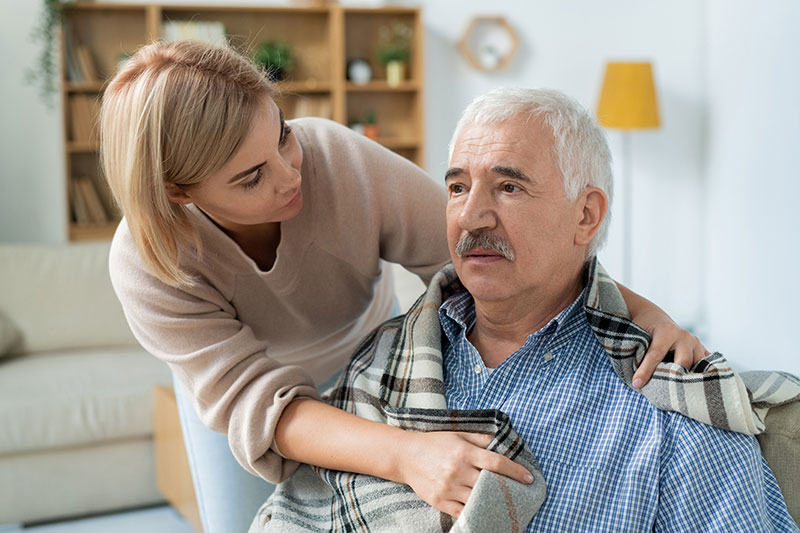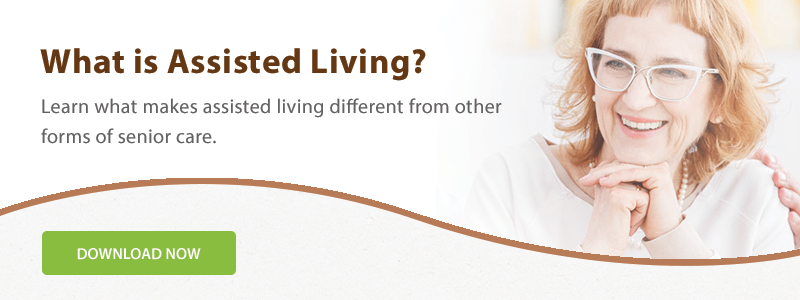The need for additional help as your loved one ages can be a sensitive subject, and it's common for others to notice the signs before your loved one expresses concern. One of the most common questions we hear at Vista Springs is, "How do I know when it's time to get help for my loved one?"
We hope this list makes it easier for you to differentiate between getting older and needing help at home.
1. Medications aren't adding up
If you refill a prescription and find that your loved one either, 1) ran out of medication before they should have, or 2) has medication left when they should be out, it may be time to seek out additional help. Running out of medication early might indicate that they're taking too much medication - more than the recommended dose or more often than prescribed. Having medication left may indicate that they're forgetting to take their medication as prescribed.
For some medications, like supplements, missed doses might not be alarming. However, for other medications, an extra dose or missed dose can lead to a life-threatening event.
2. Food is going bad
If your loved one is using fewer groceries than they have in the past and you find that groceries are going bad before they're able to use them, it may indicate that they aren't preparing meals and eating as often as they should to stay healthy. When nourishment becomes challenging, it may be time to consider getting additional help.
3. Your loved one is losing weight
Have you noticed unintentional weight loss in your loved one?
Unintentional weight loss can be the result of malnourishment, failure to thrive, or underlying serious illness, and is often one of the earliest indications that more help is needed at home. Consult with your loved one's primary care provider for guidance if you notice unintentional weight loss.
4. They're falling or getting hurt more often
We often find that older adults don't share that they've fallen or gotten hurt unless they have to, so it's important to ask questions and be observant. Signs that your loved one has fallen include:
- soreness, stiffness
- changes in mobility
- unexplained skin tears, bruises, or other injuries
- disturbances at home - things that are knocked down or out of place
Asking about recent falls when you call or visit can help you uncover any safety concerns as well.
5. You have safety concerns
It might be time to talk about more support for your loved one if you begin to notice that they're leaving the burner on, forgetting to lock their vehicle or home, eating food that has been left out too long or has expired, or getting lost or disoriented.
Although it's rarely discussed, elderly people are often targeted by scammers - by phone, mail, email, or even door-to-door sales. Be sure to keep an open dialogue with your loved one to identify any risks and educate them on common scamming techniques.
6. Mood changes
Admitting that you need help can be challenging, and recognizing that you're unable to do the things you did before can be especially frustrating and overwhelming. If your loved one becomes defensive, irritable, or exhibits signs of depression, intervention is likely necessary.
7. Living conditions are unhealthy
Keeping up with housework becomes more and more challenging as mobility and cognition decline. Sometimes the condition of the home is the most visible way to recognize when their physical and mental abilities begin to decline.
Don't expect the same level of perfection you've seen in the past, and recognize that a little dust doesn't necessarily mean that it's time for assisted living. But when their conditions become worrisome, it's time to get help.
8. They're isolating themselves
If your loved one has stopped doing the things they used to enjoy and is spending more and more time alone, they may be struggling to get around, feeling depressed, or feeling self-conscious about the upkeep of their home or even their personal hygiene.
9. Their hygiene is declining
When your loved one is not able to perform activities of daily living - like brushing their teeth, bathing, or managing incontinence - independently, it's time to seek support for them either within the home or in a retirement community. Signs that they may be struggling with personal hygiene include:
- body odor
- bed sores
- frequent urinary tract infections
- unmanaged incontinence
- new dental decay
- bad breath
Initiating a conversation with your loved one about their increasing need for help can be challenging, but the caring team at Vista Springs is here to help. Schedule a consultation with us to review the signs you've observed, discuss potential solutions and support, and help you prepare yourself to open the dialogue with your loved one in a sensitive and loving way.
To learn more, contact us today!






